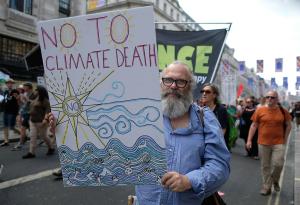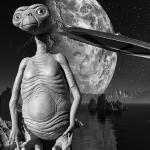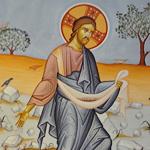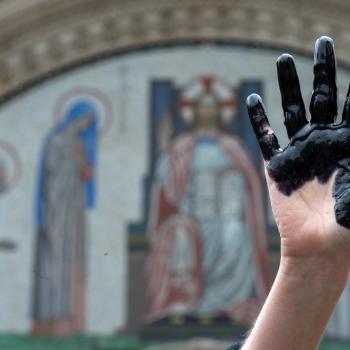
The world and all that was in it was created good. Everything has its own value, a good all to itself. That good must is not based upon the value others place upon it based upon the way they think they can use it; rather, the good it has is due to the special gifts and value God gave to it, a good found in its existence as well as in its nature. This is one of the many things we can learn from the Genesis myth when it indicated that God looked at the whole of creation and saw everything in it, including its various creatures, as being good:
So God created the great sea monsters and every living creature that moves, with which the waters swarm, according to their kinds, and every winged bird according to its kind. And God saw that it was good. And God blessed them, saying, “Be fruitful and multiply and fill the waters in the seas, and let birds multiply on the earth.” (Gen. 1:21-22 RSV).
Not only were those creatures deemed to be good, God wanted them reproduce, making sure that their species could and would thrive. Christians should take this to heart. We are called to be stewards of the Earth, to be caretakers of God’s glorious creation. The variety of species which exist in the world is something to be cherished, which is why we must do what we can to preserve them. We do not have the right to destroy species. Insofar as we fail in our stewardship, and cause various species to become extinct, we dishonor the good which God brought into existence, and in that regard, dishonor God who is reflected in and through that good. Instead of being indifferent to climate change and the harm it is causing to the earth, including the way it is killing off species after species, we are to follow the example given to us by Noah, doing what we can to preserve, not only human life, but all the species found upon the Earth. In this fashion, we should heed the words of Pope Francis:
It is not enough, however, to think of different species merely as potential “resources” to be exploited, while overlooking the fact that they have value in themselves. Each year sees the disappearance of thousands of plant and animal species which we will never know, which our children will never see, because they have been lost for ever. The great majority become extinct for reasons related to human activity. Because of us, thousands of species will no longer give glory to God by their very existence, nor convey their message to us. We have no such right. [1]
Indeed, we have no such right, and the more we act like we do, the more nihilistic we show ourselves to be. The consequence of our indifference is becoming more and more difficult to deny, as we find more and more examples as to how climate change is adversely affecting our biosphere. Species after species are being hurt, if not outright destroyed, thanks to our reckless behavior; if we are not careful, we will find we will be one of these species which goes extinct, and even before then, we will find our way of life will radically change for the worse as a result of what we have done. From the severe decline in Alaskan Snow Crabs, to the depopulation going on with bees, we find more and more indication that we are already experiencing the effects of climate change. Since bees are vital to our ecosystem, their destruction bodes ill for the future of the Earth. We should listen to those who have been studying them and their decline when they tell us the climate change plays a significant role in their declining population:
I’ve been researching bee health for over 10 years, with a focus on honey bees. In 2021, I began hearing for the first time from beekeepers about how extreme drought and rainfall were affecting bee colony health.
Drought conditions in the western U.S. in 2021 dried up bee forage—the floral nectar and pollen that bees need to produce honey and stay healthy. And extreme rain in the Northeast limited the hours that bees could fly for forage.
In both cases, managed colonies—hives that humans keep for honey production or commercial pollination —were starving. Beekeepers had to feed their bees more supplements of sugar water and pollen than they usually would to keep their colonies alive. Some beekeepers who had been in business for decades shared that they lost 50% to 70% of their colonies over the winter of 2021-2022.
These weather conditions likely also affected wild and native bees. And unlike managed colonies, these important species did not receive supplements to buffer them through harsh conditions.[2]
This is why, even if we must acknowledge that all creatures have their own good, independent from the relationship they have with the rest of creation, we can and still should be able to see everything has a good which they can share with the rest of creation. The world is an interdependent reality; what affects one will affect all of us. This is why even those whose concern are more utilitarian than ontological should find that climate change is not something we can ignore.
We have seen a grave decline in animal life and the biodiversity we need for the Earth to thrive. This should make us realize that we have a short time to deal with the problem of climate change and the way it threatens our own existence:
Global animal populations are declining, and we’ve got limited time to try to fix it.
That’s the upshot of a new report from the World Wildlife Fund and the Zoological Society of London, which analyzed years of data on thousands of wildlife populations across the world and found a downward trend in the Earth’s biodiversity.
According to the Living Planet Index, a metric that’s been in existence for five decades, animal populations across the world shrunk by an average of 69% between 1970 and 2018.[3]
Pope Francis, understanding this, reminds us that our concern should be more than just with the animals, but with all life; that is, the great beauty of creation, and the created order, is under attack:
It may well disturb us to learn of the extinction of mammals or birds, since they are more visible. But the good functioning of ecosystems also requires fungi, algae, worms, insects, reptiles and an innumerable variety of microorganisms. Some less numerous species, although generally unseen, nonetheless play a critical role in maintaining the equilibrium of a particular place. Human beings must intervene when a geosystem reaches a critical state. But nowadays, such intervention in nature has become more and more frequent. As a consequence, serious problems arise, leading to further interventions; human activity becomes ubiquitous, with all the risks which this entails. Often a vicious circle results, as human intervention to resolve a problem further aggravates the situation. For example, many birds and insects which disappear due to synthetic agrotoxins are helpful for agriculture: their disappearance will have to be compensated for by yet other techniques which may well prove harmful. We must be grateful for the praiseworthy efforts being made by scientists and engineers dedicated to finding solutions to man-made problems. But a sober look at our world shows that the degree of human intervention, often in the service of business interests and consumerism, is actually making our earth less rich and beautiful, ever more limited and grey, even as technological advances and consumer goods continue to abound limitlessly. We seem to think that we can substitute an irreplaceable and irretrievable beauty with something which we have created ourselves. [4]
Humanity, due in part, to its relationship with the incarnation, finds itself to be the first fruits of God’s creation. “Of his own will he brought us forth by the word of truth that we should be a kind of first fruits of his creatures” (Rom. 1:18 RSV). Just as Jesus was the first born from the dead (cf. Col. 1:18) implying there will be others, so humanity being the first fruits of God’s creation implies there are others. Those others, it can be said, can be found in the rest of creation, in all the various forms of life contained in the universe. This is why Paul could say the whole of creation was awaiting the coming of the children of God (cf. Rom. 8:19-25), for it meant that after us, and indeed through us, the rest of creation would be recipients of God’s grace. We must not become prideful and think grace has been exclusively given to us, that God’s love and care is only for us – Jesus made it clear God’s providence is for all creation (cf. Matt. 6:25-30). All creation is made for the kingdom of God. All that is found in creation has its place in the temporal order, providing to that order some particular good which God wanted to exist. We, humanity, have been given the mission of being stewards of the Earth. We have been given a duty, one where we are expected to help in in the preservation of the environment. When we do not do as God desires, we cannot say we are following God and God’s ways. If we are not following God’s ways, we risk cutting ourselves off from God’s grace and hindering our own spiritual relationship with God. If we care about our own salvation, we would care more than just for ourselves. Our indifference to the plight of others, including other species, takes us far from the path we are to take for our own salvation. Preserving the Earth, taking care of it and the species on it is a part of the work which we should be doing to work out our own salvation with fear and trembling. Neglecting it, we not only risk creating hell on Earth, but our own private hell.
[1] Pope Francis, Laudato si’. Vatican translation. ¶33.
[2] Jennie L. Durant, “Bees Face Many Challenges – And Climate Change Is Ratcheting Up the Pressure” in Minnesota Spokesman Recorder (10-21-2022).
[3] Joe Hernandez, “Global Animal Populations Shrank An Average Of 69% Over The Last Half-Century, A Report Says” in NPR (10-14-2022).
[4] Pope Francis, Laudato si’,¶33.
Stay in touch! Like A Little Bit of Nothing on Facebook.
If you liked what you read, please consider sharing it with your friends and family!













